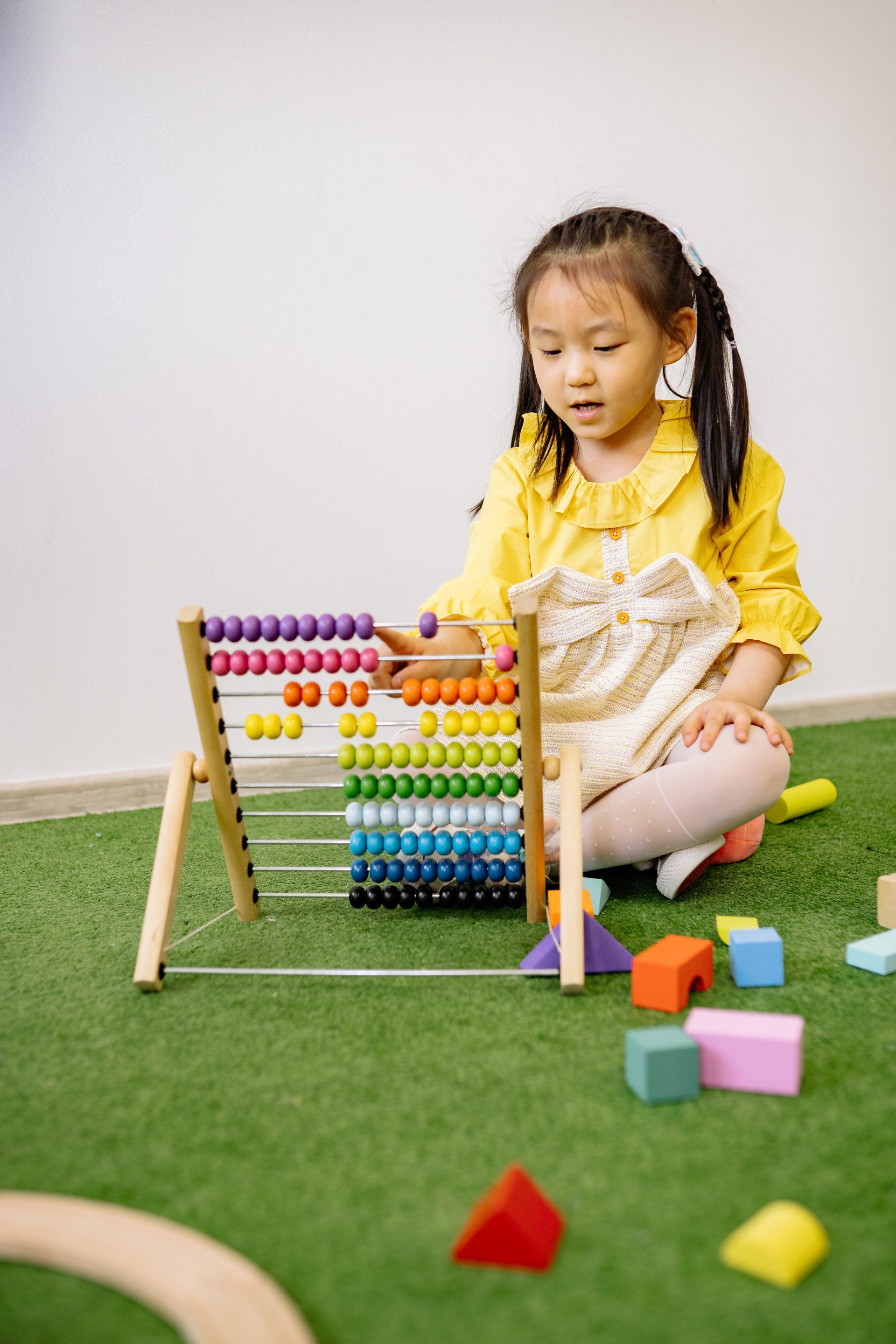Abacus Class and Its Future Advantages for Kids
Math is one of the most important parts of our lives, as it is present in different aspects of our everyday routine. We're taught this skill since we're children, although it isn't rare for young kids to struggle while learning basic arithmetic operations.
There are tons of resources and tools that we can use to help a child improve their math skills. However, one of the most effective is the Abacus.
Abacus learning is still somewhat popular in Asian and African countries. There are tons of ways this ancient device can help your child become more proficient at math and many other skills. If you're unfamiliar with the Abacus, here we have what you need to know regarding its use and how it can help your child in the long term.
But first…
What is an abacus?
The Abacus is a mechanical device composed of two parts divided by the center rod. The traditional Abacus has rounded beads, which users can adjust depending on their needs. The beads symbolize digits.
There are different abacuses, each of which is useful for a different purpose. However, an abacus can generally help you perform basic arithmetic operations, roots, squares, or cubes.
The Abacus has been around for over 4,000 years. Merchants and traders first used it from different parts of the world to track their sales in an easier way.
Despite being an old device, the Abacus has proven to help little kids develop certain abilities, including critical thinking and concentration. Hence, introducing your child to the Abacus from their early childhood can be quite beneficial for their development.
Abacus math improves visualization skills.
Kids will find it easier to perform calculations once they understand how the abacus functions. Abacus learning makes arithmetic operations uncomplicated and entertaining, helping kids overcome their fear of math and making it a fun activity instead.
The Abacus makes it easier for the user to overcome the different math challenges that they go through in their lives. Over time, kids who practice with the Abacus on a frequent basis won't need to use the Abacus anymore. It'll become easier for them to imagine the numbers and perform operations in their mind quickly, allowing them to improve their math and concentration skills simultaneously.
Training in an Abacus Class helps children develop self-reliance and confidence
It's important for a kid's development to focus not only on their skills but also on their self-esteem and confidence. The Abacus can help them have a better performance when it comes to solving arithmetic counts, which can result in a confidence boost.
Plus, abacus learning also contributes to the child’s development of analytical and problem-solving skills.
Although it’s a little contribution, abacus learning can help your kid overcome their fear of math and may also boost their confidence when it comes to dealing with complicated situations throughout their lives, not only those that are math-related.
The Abacus can help you boost your kid's self-esteem by helping them look into complicated situations and showing them that there is always a way to solve them.
Abacus improves concentration & ability to execute Mental Math
Mental math is quite an essential skill at educational institutions, no matter the level. It can help the person solve basic arithmetic operations in little time. However, doing so can be more complicated for the average person than for those who have learned how to use the Abacus.
After using the Abacus for a while, the user will get used to solving mathematical operations with it. Hence, even if the Abacus is not present, they will mimic the process in their minds, allowing them to solve these operations even if they don't have the tools on their hands.
During abacus learning, kids are required to observe flashcards containing numbers, which they should use to make calculations. This can help them improve their observational skills, concentration, and memory retention in the long run.
Training in an Abacus Class contributes to brain development
Research humans tend to use the left side of our brains to calculate, write and read, among other skills. A recent study focused on abacus learning shows that using the Abacus can help children develop better creativity and artistic skills, typically associated with the brain's right hemisphere.
Hence, an abacus not only helps to solve arithmetic operations, but it can also help your kid unleash their hidden creativity, contributing to brain
development more than other tools.
Learning the Abacus doesn't have to be complicated!
Most kids find the Abacus very intimidating at first. However, after using it for a while, you'll see that your kid has developed many other skills without even realizing it. The best part is that the Abacus can help both kids and adults, so don't restrain yourself from using it!
The Abacus can seem quite confusing at first. However, with enough and proper training, it'll become easier to understand how to perform operations and calculations. An abacus doesn't make math more intimidating and complicated. Contrary to this, it actually turns mathematic operations into fun and easy activities.
Learning how to use the Abacus requires time and constant practice. However, all the hard work will have good results in the long run. Once your kid masters the Abacus, mathematics will not be as intimidating as most people think it is anymore!
Conclusion
Abacus learning is appropriate for people of all ages, but it can be especially beneficial for younger kids. It can help them develop diverse skills that will be useful for them in later stages of life, such as critical and analytical thinking, concentration and focus, as well as self-reliance and confidence.
Plus, it's easier for younger children to get used to the Abacus thanks to the interesting and entertaining approach it has to math. After all, the colorful beads and mechanical functioning of the Abacus awakens the curiosity in most kids.
If you think your kid would benefit from abacus learning, you can start the training today and start helping them develop their skills!



